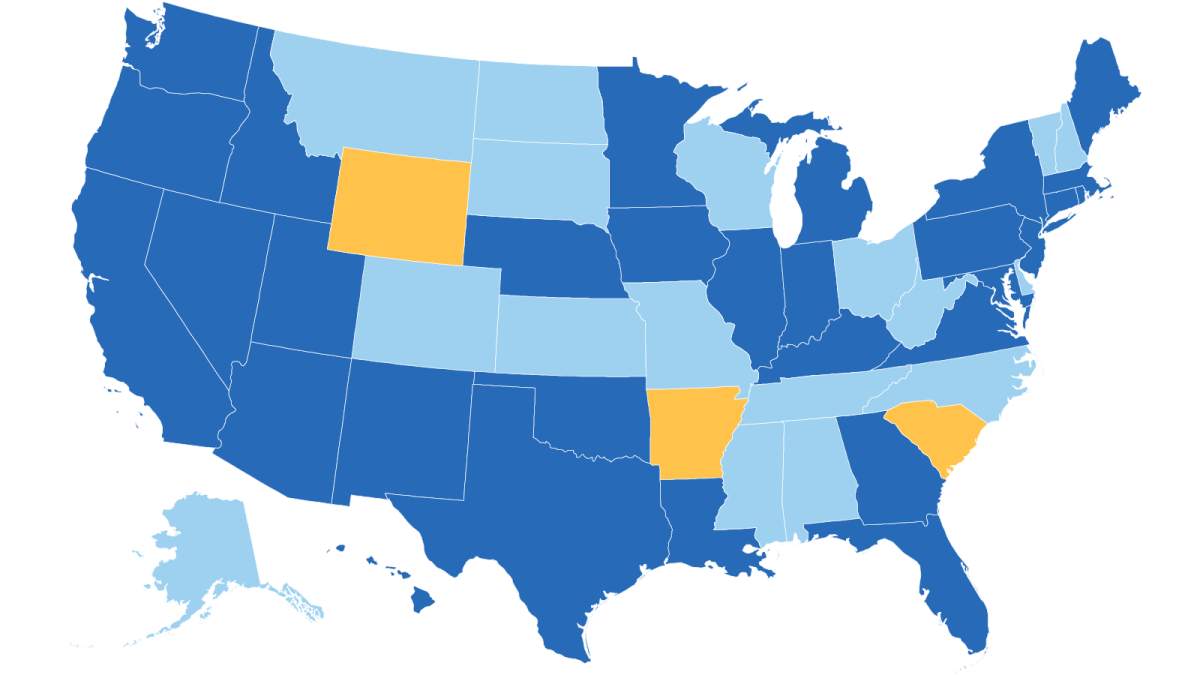 Online hate crimes have become a distressing reality in today’s digital age. With the rise of social media platforms and virtual communities, individuals are facing an alarming surge in acts of hatred and discrimination online.
Online hate crimes have become a distressing reality in today’s digital age. With the rise of social media platforms and virtual communities, individuals are facing an alarming surge in acts of hatred and discrimination online.
These malicious actions not only target victims based on their race, religion, gender, or sexual orientation but also leave lasting psychological scars. In this blog post, we will delve into the world of online hate crimes to understand its impact on victims and society as a whole.
So buckle up as we explore the stats, facts, and ways to combat this disturbing trend gripping our digital landscape!
What are online hate crimes?
In the realm of cyberspace, online hate crimes are acts of prejudice and discrimination that occur through digital platforms.
These heinous offenses can take various forms, including hate speech, cyberbullying, harassment, doxing (revealing personal information without consent), revenge porn dissemination, and even death threats. The internet provides a cloak of anonymity for perpetrators to target individuals based on their race, religion, ethnicity, gender identity or expression, sexual orientation – essentially any characteristic that sets them apart.
What makes online hate crimes particularly alarming is the reach they have. With just a few clicks or keystrokes, hateful messages can be disseminated to thousands or even millions of people across the globe within seconds. This widespread impact amplifies the harm inflicted on victims and perpetuates an environment rife with fear and hostility.
The motivations behind online hate crimes vary widely but often stem from deep-rooted prejudices and biases held by individuals seeking to intimidate or spread hatred towards certain groups. The virtual world provides these perpetrators with a sense of detachment from real-life consequences while enabling them to find like-minded individuals who reinforce their beliefs.
Furthermore, online platforms themselves can inadvertently contribute to this issue by fostering echo chambers where extremist ideologies thrive unchecked. Algorithms designed to personalize content recommendations may unintentionally fuel polarization by reinforcing existing beliefs rather than promoting diverse perspectives.
Understanding what constitutes an online hate crime is crucial in both recognizing its prevalence in our society and working towards developing effective strategies for prevention and intervention. By shedding light on this dark underbelly of the digital world we inhabit today we can begin taking steps towards creating safer spaces where diversity is celebrated rather than attacked.
Who is most likely to be a victim of an online hate crime?
 Online hate crimes can impact anyone, regardless of their age, gender, race, or background. However, certain groups are more likely to be targeted than others. One group that is often at a higher risk of becoming victims of online hate crimes are individuals from marginalized communities.
Online hate crimes can impact anyone, regardless of their age, gender, race, or background. However, certain groups are more likely to be targeted than others. One group that is often at a higher risk of becoming victims of online hate crimes are individuals from marginalized communities.
Members of racial and ethnic minority groups may experience heightened levels of online harassment due to their perceived differences. This includes people who identify as Black, Asian American, Hispanic/Latinx, or Indigenous. Additionally, LGBTQ+ individuals may also face an increased risk of being targeted for hate speech and discriminatory acts online.
Women are another group that commonly experiences online hate crimes. They may be subjected to misogynistic comments and threats based on their gender. Cyberbullying targeting girls and young women is particularly prevalent on social media platforms.
Religious minorities can also fall victim to online hate crimes because of their beliefs or practices. Islamophobia has become a widespread issue in recent years with Muslims facing derogatory remarks and even threats through various digital channels.
It’s important to note that these statistics do not mean that other individuals cannot be victims of online hate crimes. These patterns highlight the need for targeted interventions and support systems for those who belong to marginalized communities most frequently affected by such offenses.
Which states have the most online hate crimes?

Which states have the most online hate crimes? Let’s take a look at some statistics and facts to shed light on this issue. It is important to note that hate crimes can occur anywhere, regardless of location or population size. However, there are certain states in the United States where online hate crimes seem to be more prevalent.
California is one state that consistently ranks high in terms of reported online hate crimes. With its diverse population and widespread internet access, it unfortunately creates an environment where hateful individuals can easily target others online.
New York is another state that experiences a significant number of online hate crimes. As a hub for various cultures and communities, it becomes a breeding ground for both tolerance and intolerance.
Texas also sees its fair share of online hate crimes due to its large population and vast social media presence. The anonymity provided by the internet allows perpetrators to spread hatred without fear of immediate consequences.
Florida, with its substantial older adult population combined with widespread internet use among all age groups, has seen an increase in reported cases of online hate crimes over recent years.
While these states may have higher numbers of reported incidents compared to others, it does not mean that other states are immune from online hate crime issues. Awareness, education, and proactive measures must be taken nationwide to combat this alarming trend.
How do online hate crimes affect victims?
Online hate crimes can have a profound impact on the victims who are targeted. The effects can range from emotional distress to physical harm, and they can extend far beyond the immediate incident. For many victims, online hate crimes result in feelings of fear, anxiety, and isolation.
One of the most significant ways that online hate crimes affect victims is through psychological harm. Being subjected to hateful messages or threats online can lead to increased stress levels and mental health issues such as depression and anxiety. These attacks can cause individuals to question their self-worth and identity, leading to long-lasting negative impacts on their overall well-being.
In addition to the psychological toll, online hate crimes can also have real-world consequences for victims. Cyberbullying or harassment may result in social exclusion or damage professional reputations. In extreme cases, it can even lead to physical violence or intrusive behaviors offline.
Moreover, online hate crimes create an environment where marginalized groups feel unsafe expressing themselves freely and participating in public discourse. This silencing effect stifles diversity of opinion and hampers societal progress by creating barriers for underrepresented voices.
It is important to recognize that the impact of online hate crime extends beyond individual victims; it affects entire communities as well. When members of a community face targeted attacks based on their race, religion, gender identity, or other characteristics, it creates a climate of fear and division within society.
Addressing this issue requires a multi-faceted approach involving education about responsible internet use and promoting empathy among users. Tech companies must also take steps to ensure safer platforms by implementing robust moderation systems that swiftly address instances of hateful content.
Combating online hate crimes requires collective effort from individuals, communities,and technology platforms alike.
It is only through proactive measures that we will be ableto create an inclusive digital space where everyone feels safe,respected,and valued regardless of their background
What can be done to prevent online hate crimes?

Preventing online hate crimes requires a multifaceted approach that involves individuals, communities, and technology platforms. Education is key to raising awareness about the consequences of hate speech and the importance of treating others with respect. By promoting empathy and understanding, we can foster an environment where tolerance prevails.
Communities play a crucial role in combating online hate crimes by creating safe spaces for dialogue and support. Local organizations can organize workshops or events that address the issue of hate speech, providing tools for bystander intervention and conflict resolution.
Law enforcement also has a vital role in preventing online hate crimes. They should be adequately trained to identify and respond to incidents effectively. Collaborations between law enforcement agencies at local, national, and international levels are essential for sharing information on potential threats.
Technology platforms must take responsibility for monitoring their platforms for hate speech content actively. Implementing robust moderation policies can help detect and remove harmful content promptly. Additionally, improving reporting mechanisms so users can easily report instances of online hate crimes is essential.
It’s important to remember that preventing online hate crimes is not solely the responsibility of one group or entity; it requires collective effort from all stakeholders – individuals, communities, tech companies, educators, policymakers – working together towards fostering an inclusive digital landscape.
How to Protect Yourself Online?
In this digital age, where online hate crimes are on the rise, it is crucial to take steps to protect yourself and your loved ones. Here are some practical tips to safeguard your online presence:
1. Be Mindful of Your Privacy Settings: Review and update the privacy settings on your social media accounts regularly. Limit who can see your posts and personal information. Your IP is your ID, remember that anyone can do an IP look-up on your address.
2. Use Strong Passwords: Create unique and strong passwords for all of your online accounts. Avoid using easily guessable information like birthdays or pet names.
3. Think Before You Share: Be cautious about what you share online, especially when it comes to personal details or sensitive information. Once something is shared, it can be difficult to completely erase it from the internet.
4. Report Offensive Content: If you come across any offensive or hate-filled content online, report it immediately to the platform administrators or relevant authorities.
5. Stay Updated with Security Measures: Keep your devices protected by installing security software, firewalls, VPN, and regular updates for operating systems and applications.
6. Educate Yourself About Online Safety: Stay informed about current trends in cyber threats and online safety practices through reputable sources such as government websites or cybersecurity organizations.
7. Don’t Engage with Trolls or Bullies: It’s best not to engage with individuals spreading hateful messages or engaging in cyberbullying behavior directly. Instead, document the incidents and report them appropriately.
8. Reach Out for Support: If you become a victim of an online hate crime, don’t hesitate to seek support from friends, family members, local law enforcement agencies, or helplines dedicated specifically to cybercrime victims.
Remember that while these measures can help minimize risks associated with online hate crimes; they do not guarantee absolute protection against malicious intent in cyberspace.
Best VPN for Online Security
HideIPVPN offers a VPN service with military-grade encryption, and high-speed servers with unlimited bandwidth.
Our service comes with shared IP addresses so that your activity can never be tied to one particular user, further protecting your privacy.

We also offer DNS leak protection, a Kill Switch, the latest VPN protocols, and a guaranteed no-log policy.
Best VPN Deal! Get HideIPVPN for $2.7/mo!
Every purchase you make comes with a 30-day money-back guarantee.
Conclusion
Online hate crimes have become a disturbing and pervasive issue in today’s digital age. The rise of social media platforms and the anonymity they provide has fueled the spread of hate speech, harassment, and discrimination. It is crucial to recognize the severity of online hate crimes and take proactive measures to address this growing problem.
Throughout this article, we have explored what online hate crimes are and who is most likely to be targeted. We have also examined which states have experienced the highest number of these offenses. Additionally, we discussed how online hate crimes can profoundly impact their victims emotionally, psychologically, and even physically.
It is essential for individuals, communities, businesses, and governments to work together in combating online hate crimes effectively. Education plays a vital role in raising awareness about the consequences of spreading hatred online while promoting tolerance and empathy.
Social media platforms must implement stricter regulations regarding hateful content by monitoring user behavior closely. Users should report any instances of hate speech or harassment promptly so that appropriate action can be taken against offenders.
Furthermore, law enforcement agencies need to prioritize investigating online hate crimes as serious offenses. By dedicating resources specifically towards tracking down those responsible for perpetuating hatred on the internet, authorities can send a clear message that such behavior will not be tolerated.
In conclusion (without using “In conclusion”), it is imperative that we foster an inclusive society where diversity is celebrated rather than attacked. Online platforms should serve as spaces for connection, understanding,and dialogue rather than breeding grounds for hatred.



